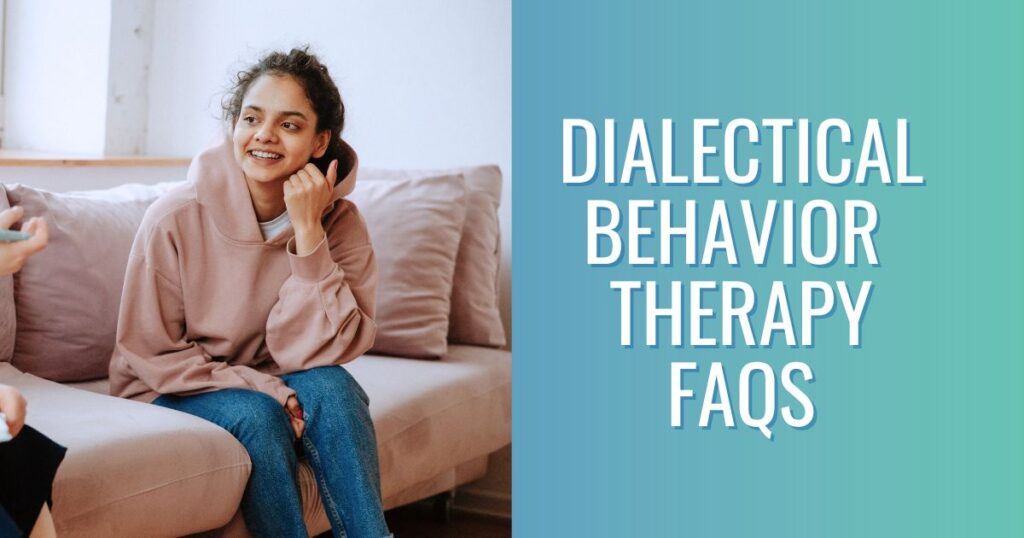Dialectical Behavior Therapy (DBT):
Frequently Asked Questions
Individuals living with a diagnosis of Borderline Personality Disorder can greatly benefit from Dialectical Behavior Therapy (DBT) and experience overall improvement in mental health and wellbeing. Read more to see some of the most commonly asked questions about this program and how it can help!
1. What is DBT?
Dialectical Behavior Therapy (DBT) is a comprehensive, evidenced based treatment developed by Marsha Linehan for adults diagnosed with Borderline Personality Disorder and for adolescents who struggle with regulating emotions, impulsivity and maintaining relationships. Research has shown that DBT is effective in reducing psychiatric hospitalizations and self harm behavior, while it improves functioning, mood and relationships.
2. How can DBT help?
The objectives of DBT are all around helping an individual live a full and enjoyable life. Incorporating DBT into your treatment plan can help you:
- Create a life worth living
- Learn more effective coping skills
- Change thinking patterns, emotional patterns, and behavioral patterns that are causing misery and distress
- Reduce symptoms of mental health conditions such as depression, anxiety, and PTSD
- Improve your relationships.
- Reduce self-destructive behaviors such as self-harm.
3. What types of skills does DBT support?
- Mindfulness: Being present in the moment and accepting your thoughts and feelings without judgment.
- Interpersonal effectiveness: Communicating effectively and setting healthy boundaries in relationships.
- Emotion regulation: Managing intense emotions in a healthy way.
- Distress tolerance: Coping with difficult situations without resorting to unhealthy coping mechanisms.
4. What does DBT look like?
DBT includes weekly individual therapy and a skills group along with a coaching-call component to help you utilize skills in difficult moments.
5. What is a skills group?
The skills group is a weekly class which teaches skills in four areas: mindfulness, distress tolerance, emotion regulation and interpersonal effectiveness. Learning and using these skills aids in improving your ability to concentrate in the moment, tolerate stress, regulate emotions and be more effective in relationships.
6. How do the coaching calls work?
We know that it’s difficult to use skills in all areas of your life, so in the evenings and on weekends, you will have access to a trained DBT therapist who can “coach” you on how to use skills in the moment.
7. Are there any differences between the adult and adolescent DBT programs?
There are a few differences between adult and youth DBT programs. Adolescents do not need to have a diagnosis of Borderline Personality Disorder. Both the adult and adolescent programs have individual therapy, skills group and coaching calls. In the adolescent program, a parent/caregiver also attends the skills group in order to learn the same skills as their adolescent. In addition, parents/caregivers can call for coaching in between sessions.
8. Can all therapists provide DBT?
If you are considering DBT, it is important to find a therapist who is trained in this type of therapy. You can ask your doctor or current provider for a referral, or you can search for a therapist online.
9. How long does treatment typically last?
Therapy looks different for everyone, and the benefits of DBT can be life-lasting. The duration of treatment is unique to each individual, but typically ranges from one year or longer depending on specific needs and progress.
10. How can I get started?
There are a few ways to find out more about DBT services:
- Talk to your doctor or mental health professional.
- Search for a DBT therapist online.
- Contact your local mental health organization.
Start with CSG
If you have more questions or would like to learn more about DBT, contact us today at 1.877.907.7970.

